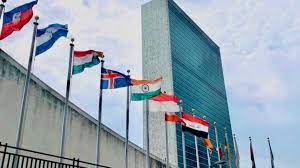
There are many management theories which we use in our day to day life. Some knowingly and some unknowingly.
I was lucky to have number of command appointments in my service career.
I always shared my experiences with the young budding commanders.
One of the advice used to be – “As a commander you have to put the shark in the tank at the right time”.
The Story
The Japanese love eating fresh fish. But the fish got depleted, in the waters close to sea shore, due to over fishing. So the Japanese fishing boats got bigger and went farther from the shores. The farther the fishermen went, the longer it took to bring in the fish. If the return trip took more than a few days, the fish would lose their freshness.
To solve this problem, fishing companies installed freezers on their boats. They would catch the fish and freeze them at sea. Freezers allowed the boats to go farther and stay longer. However, the frozen fish did not taste the same as fresh fish and the frozen fish brought a lower price.
So fishing companies installed fish tanks. This solved the problem to a certain extent. However, to make adequate profit, the fish tanks started getting overstuffed, with little room for the fish to thrash around. The fish stopped moving and started losing their freshness once again.
To keep the fish tasting fresh, the Japanese fishing companies still put the fish in the tanks. But now they added a small shark to each tank. The shark would eat a few fish, but most of the remaining fish would remain active and fresh.
Lesson & Recommendation
“Man thrives, oddly enough, only in the presence of a challenging environment.”
– L. Ron Hubbard
So in the unit, establishment or group an optimum level of activity and excitement has to be maintained to keep the group and the people productive, active, healthy and happy.
Too much of work for too long would burn them off with fatigue and too little work would cause reduction in output due to boredom and inactivity.
As a commander and leader one has to maintain that optimum level of activity and know when to put the shark in the tank and for how long.
Addendum
Some times as a commander one needs to become the shark himself.
Coming up
Tyre pressure theory
Please share your experiences
For regular updates, please register here


